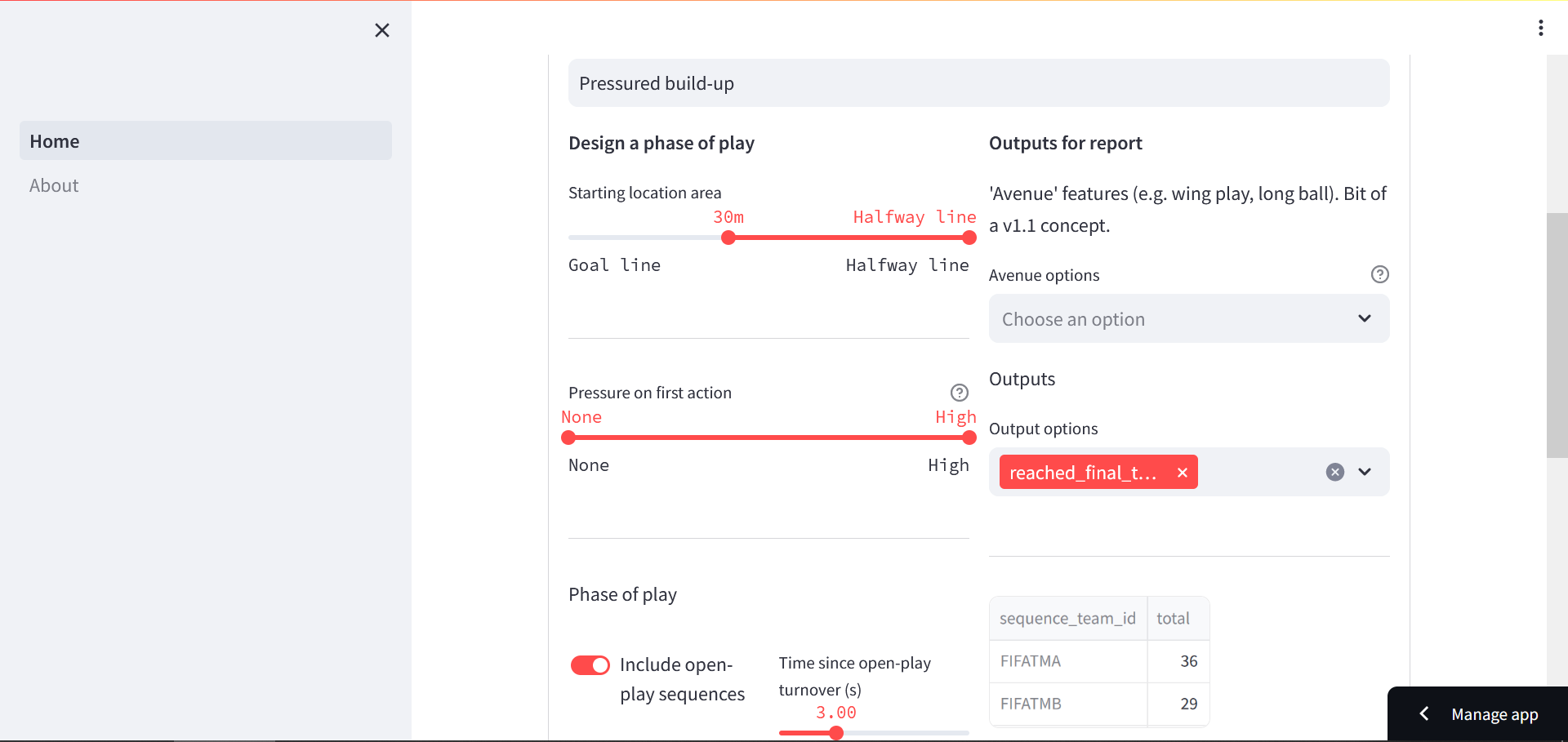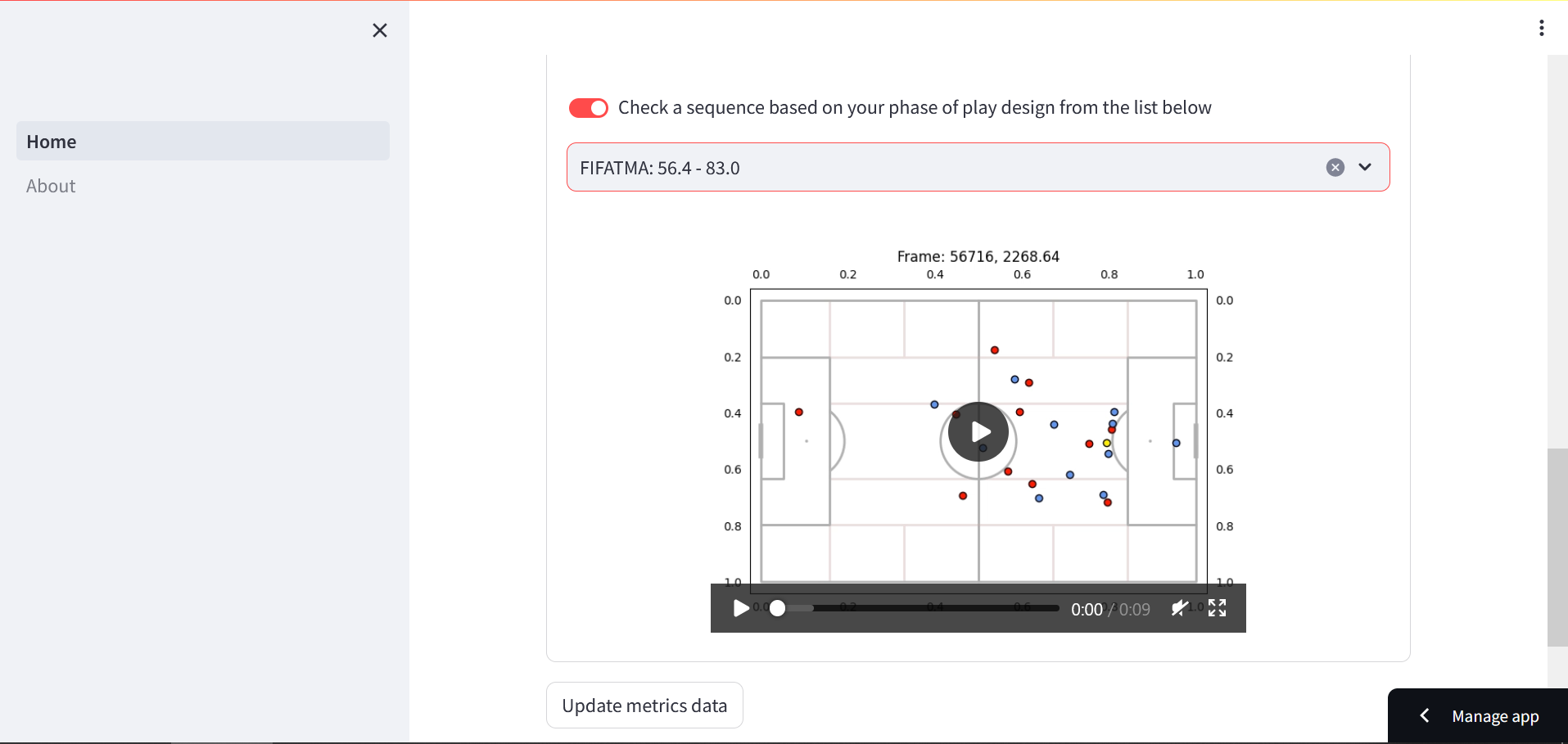Purpose of innovation; process of innovation
In the words of the musical heavyweights Scouting for Girls, "There's a little bit of Christmas in the air."* Not, like, literally. But the dawning of this morning brings the Training Ground Guru Live conference, with a day of sporting directors and analytics today on Monday, and the StatsBomb conference tomorrow on Tuesday (papers from the StatsBomb research competition are available here). All that so soon after the sweet, sweet farce of a replay operator uttering the words "the on-field decision was offside".
*Keep it bookmarked for December
How lucky that on the eve of those conferences, we (some of us) also got a brand new camera angle to watch football in. On the UK's Sky Sports Football channel, viewers got to see an in-development 'Game Mode' camera angle. If 'like in FIFA/EA FC' means anything to you: like that. If not, the camera was on a track the length of the sideline following the play, and pivoting slightly for better angles/to reduce the distance it needed to travel.
Now, I'm a sucker for these things, but the near-total lack of action in the game left me plenty of time to dwell on 'why'. Is it there to be like video games for the people whose interaction with football is mostly through their PlayStation; is it there because there's something genuinely benficial in that type of angle which everyone can enjoy; or maybe it's to be like weirdly-flavoured Oreos, where the strategy is to create brand awareness through peculiar, temporary novelties.
Alas, a tangent: is Gerard Piqué's retirement venture, the indoor football Kings/Queens League, a pumpkin-spice Oreo? Should FIFA (or UEFA) incorporate it to keep people coming back to plain old, milk-flavour 90-minute matches?
Let's wrestle this back on track.
Innovation comes in many forms and, like a Slinky, rarely arrives front-to-back in a regular timeline. The explosion in 'AI stuff' in the past year wouldn't have happened if OpenAI hadn't put a very user-friendly interface around their GPT model. That in turn (if various podcasts about the subject I tuned into are to be believed) wouldn't have happened without That One Paper From Google, 'Attention is all you need', which proposed a new type of learning architecture that now goes into all the language models.
On a much smaller scale (though less potentially-dystopian) I recently had three awkward projects at work move along by leaps and bounds within the same week, as if they were proverbial London buses. Progress and invention isn't linear, it leaps, like Archimedes.
Innovation may not be able to be controlled, but it can be nurtured. There are various methods but a main ones tends to be getting more people able to work on things, preferably with some degree of interaction.
That's often been difficult in football analytics, with the differing ways that people 'see' the game - not just in terms of opinion but in the actual brain processing. The way that I see a match unfolding won't be the same as the coaches in the dug-outs. For me at least, a part of that stems from the data itself being a framework, a shorthand for breaking up complicated patterns. I'd be surprised if the same wasn't true for other 'data people' too, whether that framework be 'pass event'-based or 'possession value model'-based or 'high-intensity run'-based.
There's a quote from Juanmo Lillo in an old interview with Sid Lowe that I like (but sadly can't find the link for right now): "Qualities go together. Naturally, you see the passes you can make; if you can't make them, you stop seeing them." In more ways than one, the passes are the data.
As data people we've often talked - or been told - about how we have to learn to 'speak football'. This is true, undeniably, both because it's helpful and is also more fun than hyperparameter tuning. And yet, in our defence, if 'football' wants to get the most out of 'data' then the opposite has to happen too.
I've been working on a side project which I've just got to a 'yeah, I'm done with this' stage, a 'build your own metrics' webapp using event and tracking data (from Metrica Sports' open repo). Coaches and analysts watch too much video than is healthy for them, but they can also be very picky (and hard to pin down) about their definitions. So the idea was: why not let them create their own?

Of course, you'd never leave an analyst without any video, which is why the prototype gathers all the sequences that fall within their definition and lets them watch. (With tracking data, of course, although you could link this to 'real life' video if you had it).

In a perfect world, there would be a number of benefits to this. One would be analysts and coaches (potentially) getting more time to do things other than watching football (though that might just be a pipe dream). Another, I think, would be that by offering a suite of options for definitions, it matters less if the data scientists/engineers/developers get things exactly right. It could also reduce the breadth of definition, if data people are called upon to add a component of a concept rather than one in its entirety.
And then there's one about innovation too. If you help bridge the gap between the two groups, you increase the number of people whose minds are bubbling away on the same problems. You not only understand the framework that the other party is seeing things through, and the way that may be shaping their viewpoint, but you get to understand the opportunities it brings too.
There's a second half to my Lillo quote, a passage or two along in the interview: "A guy who knows he can place a ball 75 metres, opens up his perspective to do that."
The link to the 'metrics creator' is here, with a screen recording walkthrough is here. The code can be found through my GitHub, here.